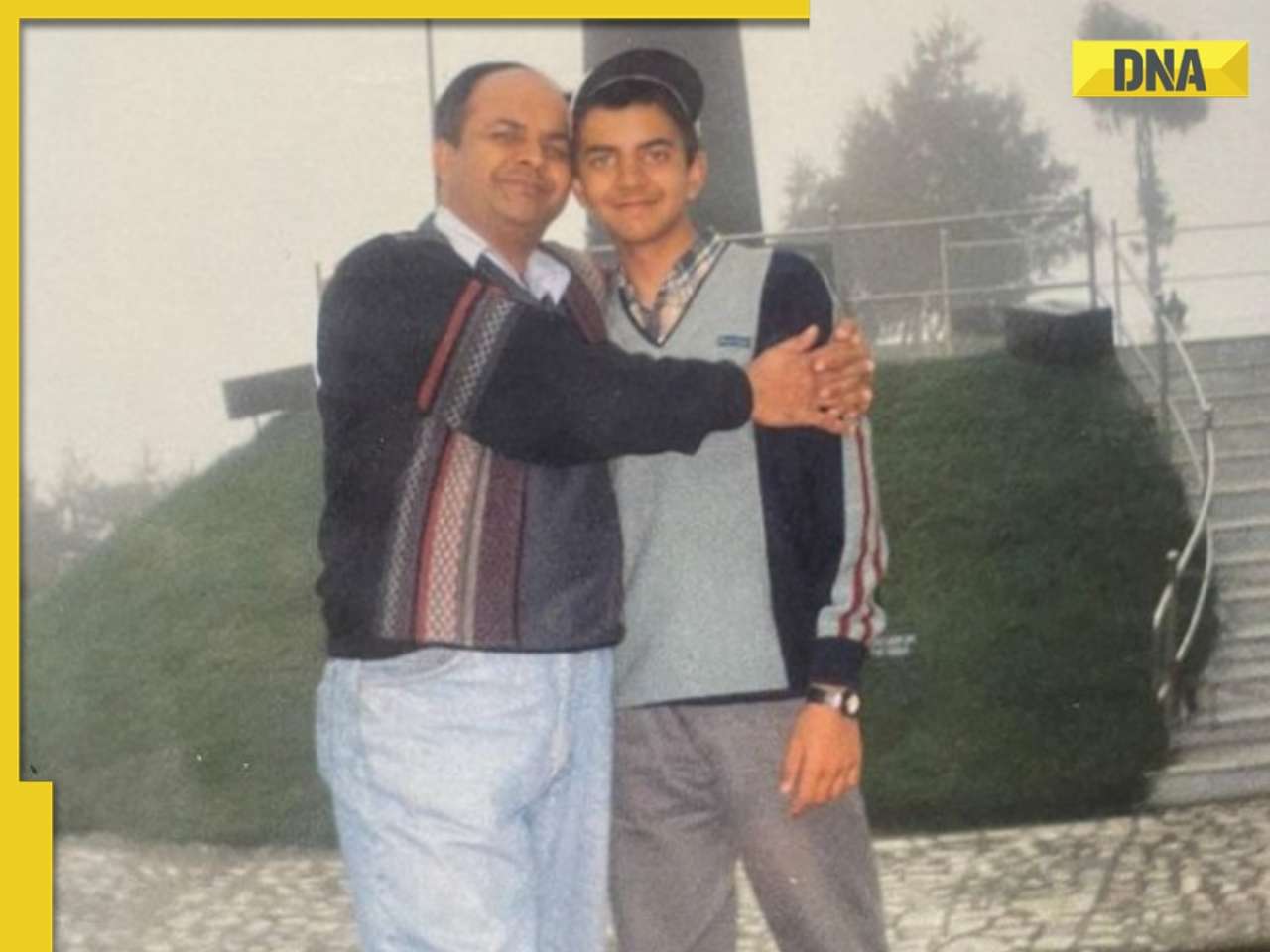Prison life has been eased for convicted "shoe bomber" Richard Reid, boosting concerns about what will happen when US president Barack Obama moves dozens of Guantanamo Bay, Cuba, detainees to US soil.
Prison life has been eased for convicted "shoe bomber" Richard Reid, boosting concerns about what will happen when US president Barack Obama moves dozens of Guantanamo Bay, Cuba, detainees to US soil.
Critics say the disclosures about Reid in court documents underscore the tendency in US prisons to loosen restrictions over time, posing risks if applied to Guantanamo detainees once branded "enemy combatants."
"The system will default toward allowing more visitation, access and communication," said Stewart Baker, who served as general counsel at the National Security Agency under presidents George HW Bush and Bill Clinton.
"By the time we realise that it's a bad idea, a lot of damage could have been done," said Baker, who also served at the Department of Homeland Security under president George W Bush and is now a partner at Steptoe & Johnson LLP.
Critics worry extremists will use the prisons to recruit inmates to their cause and spread propaganda inside and out.
Reid, sentenced to life for trying to blow up a jumbo jet in 2001 with explosives in his shoes, was moved from a special isolation unit of the so-called Supermax prison in Florence, Colorado, into another area where his mail and contacts with visitors and other inmates are subject to less scrutiny.
His conditions were relaxed in June after he filed a court challenge and went on a hunger strike. In August he moved to the general population. With good behavior, the British-born follower of Osama bin Laden might be transferred in future years to a less secure prison facility, court papers said.
Obama plans to close Guantanamo detention centre in response to criticism by human rights activists in both the United States and abroad, although his January 22 deadline will likely be missed.
Administration officials argue there is no need to worry, citing the 300 individuals convicted on terrorism-related charges held already in US prisons. They say Reid and similar inmates are closely monitored by prison officials.
The Obama administration insists it is sensitive to the challenge of preventing Guantanamo inmates in the US criminal justice system from using the courts and prisons as pulpits for anti-American rhetoric.
To that end, officials are considering a high-security prison in rural Illinois for the detainees and likely will impose "special administrative measures" to tightly curb contacts like those put on Reid for six-plus years.
"We will not move any detainees to the United States unless and until we are convinced they will be held safely and securely in facilities that satisfy all our security concerns," justice department spokesman Dean Boyd said.
US attorney general Eric Holder decided to try the self-professed mastermind of the September 11, 2001, attacks and co-conspirators in New York. He inspected the facilities last week in Manhattan where they will be held.
Kenneth Wainstein, who ran the justice department's national security division under president George W Bush, said restrictions should depend on the detainee.
While Reid simply carried out orders, someone like Omar Abdel-Rahman, the "blind sheik" imprisoned for helping plot the 1993 World Trade Centre bombing, is considered a leader they would want to keep from communicating.
"It is too simplistic to predict either that all detainees will be forever locked down incommunicado or alternatively that they will all be completely free to communicate with other terrorists and radicalize fellow inmates," Wainstein said. Security will be "based on a risk-based analysis."
Critics say prisoners like Reid could prove a propaganda boon to US enemies if given enough leeway.
"The idea that from the bowels of the worst the American justice system can do, this person is still breathing defiance and expressing joy at every casualty in Afghanistan and the like, has a profound propaganda value for al Qaeda, and (we) are doing ourselves grave harm if we allow that," Baker said.
Reid, who pleaded guilty to trying to blow up a trans-Atlantic flight three months after the September 11, 2001, attacks, is one of the more notorious of some 400-plus inmates in Supermax situated 90 miles (144km) south of Denver and considered the most secure lockup in the US prison system.
Others at Supermax who have their communications severely limited are Zacarias Moussaoui, serving a life sentence for conspiring with al Qaeda in the September 11 attacks and those convicted of the 1993 World Trade Centre bombing.
The judge who sent Moussaoui to prison told him, "You will die with a whimper. The rest of your life you will spend in prison. You will never again get a chance to speak."
For the first 12 years of his sentence, Reid was confined 23 hours a day in Supermax to a 75.5-square-foot (7-square meter) cell and had virtually no contact with the outside world beyond his lawyers and immediate family members.
He petitioned a federal court in Denver and earlier this year went on a hunger strike asserting he was being denied his rights to practice his Sunni Muslim faith, or to learn Arabic, order books and magazines or watch television news.
That hunger strike apparently ended and he was moved into the general population wing, where his visits and mail are no longer routinely monitored by the FBI, Supermax prison official Mark Collins said in court papers last month.
The move came after an annual Justice Department review found he has not been seeking to commit violence. Now he can talk with other inmates without monitoring, order books and magazines with prison approval, receive non-family visits and speak with the media.
Reid's contacts with the outside world remain subject to scrutiny. Prison authorities have limited his correspondence to a few immediate relatives because he still is considered a security risk, Collins said.
In 2005, three men convicted in the 1993 World Trade Center bombing at Supermax were found to have corresponded with Islamic militants in Spain, prompting the Bureau of Prisons to overhaul and beef up how it monitored communications.
Howard Safir, a former top US Marshals Service official and New York City police commissioner who works as a security consultant, said the prison system is sound but it only takes one breach to do damage.
"As good as we are, we have to be right 100% of the time," he said. "Al Qaeda only has to be right once."
![submenu-img]() Anant Raj Ventures into tier 2 and tier 3 cities, pioneering growth in India’s real estate sector
Anant Raj Ventures into tier 2 and tier 3 cities, pioneering growth in India’s real estate sector![submenu-img]() Sophie Turner reveals she wanted to terminate her first pregnancy with Joe Jonas: 'Didn't know if I wanted...'
Sophie Turner reveals she wanted to terminate her first pregnancy with Joe Jonas: 'Didn't know if I wanted...'![submenu-img]() Meet outsider who was given no money for first film, battled depression, now charges Rs 20 crore per film
Meet outsider who was given no money for first film, battled depression, now charges Rs 20 crore per film![submenu-img]() This is owner of most land in India, owns land in every state, total value is Rs...
This is owner of most land in India, owns land in every state, total value is Rs...![submenu-img]() Meet man who built Rs 39832 crore company after quitting high-paying job, his net worth is..
Meet man who built Rs 39832 crore company after quitting high-paying job, his net worth is..![submenu-img]() Meet woman who first worked at TCS, then left SBI job, cracked UPSC exam with AIR...
Meet woman who first worked at TCS, then left SBI job, cracked UPSC exam with AIR...![submenu-img]() Meet engineer, IIT grad who left lucrative job to crack UPSC in 1st attempt, became IAS, married to an IAS, got AIR...
Meet engineer, IIT grad who left lucrative job to crack UPSC in 1st attempt, became IAS, married to an IAS, got AIR...![submenu-img]() Meet Indian woman who after completing engineering directly got job at Amazon, then Google, Microsoft by using just...
Meet Indian woman who after completing engineering directly got job at Amazon, then Google, Microsoft by using just...![submenu-img]() Meet man who is 47, aspires to crack UPSC, has taken 73 Prelims, 43 Mains, Vikas Divyakirti is his...
Meet man who is 47, aspires to crack UPSC, has taken 73 Prelims, 43 Mains, Vikas Divyakirti is his...![submenu-img]() IIT graduate gets job with Rs 100 crore salary package, fired within a year, he is now working as…
IIT graduate gets job with Rs 100 crore salary package, fired within a year, he is now working as…![submenu-img]() DNA Verified: Is CAA an anti-Muslim law? Centre terms news report as 'misleading'
DNA Verified: Is CAA an anti-Muslim law? Centre terms news report as 'misleading'![submenu-img]() DNA Verified: Lok Sabha Elections 2024 to be held on April 19? Know truth behind viral message
DNA Verified: Lok Sabha Elections 2024 to be held on April 19? Know truth behind viral message![submenu-img]() DNA Verified: Modi govt giving students free laptops under 'One Student One Laptop' scheme? Know truth here
DNA Verified: Modi govt giving students free laptops under 'One Student One Laptop' scheme? Know truth here![submenu-img]() DNA Verified: Shah Rukh Khan denies reports of his role in release of India's naval officers from Qatar
DNA Verified: Shah Rukh Khan denies reports of his role in release of India's naval officers from Qatar![submenu-img]() DNA Verified: Is govt providing Rs 1.6 lakh benefit to girls under PM Ladli Laxmi Yojana? Know truth
DNA Verified: Is govt providing Rs 1.6 lakh benefit to girls under PM Ladli Laxmi Yojana? Know truth![submenu-img]() In pics: Taarak Mehta Ka Ooltah Chashmah actress Deepti Sadhwani dazzles in orange at Cannes debut, sets new record
In pics: Taarak Mehta Ka Ooltah Chashmah actress Deepti Sadhwani dazzles in orange at Cannes debut, sets new record![submenu-img]() Ananya Panday stuns in unseen bikini pictures in first post amid breakup reports, fans call it 'Aditya Roy Kapur's loss'
Ananya Panday stuns in unseen bikini pictures in first post amid breakup reports, fans call it 'Aditya Roy Kapur's loss'![submenu-img]() Remember Harsh Lunia? Just Mohabbat child star, here's how former actor looks now, his wife is Bollywood's popular...
Remember Harsh Lunia? Just Mohabbat child star, here's how former actor looks now, his wife is Bollywood's popular...![submenu-img]() Mother's Day 2024: Bollywood supermoms who balance motherhood, acting, and run multi-crore businesses
Mother's Day 2024: Bollywood supermoms who balance motherhood, acting, and run multi-crore businesses![submenu-img]() Rocky Aur Rani's Golu aka Anjali Anand shocks fans with drastic weight loss without gym, says fitness secret is...
Rocky Aur Rani's Golu aka Anjali Anand shocks fans with drastic weight loss without gym, says fitness secret is...![submenu-img]() Haryana Political Crisis: Will 3 independent MLAs support withdrawal impact the present Nayab Saini led-BJP government?
Haryana Political Crisis: Will 3 independent MLAs support withdrawal impact the present Nayab Saini led-BJP government?![submenu-img]() DNA Explainer: Why Harvey Weinstein's rape conviction was overturned, will beleaguered Hollywood mogul get out of jail?
DNA Explainer: Why Harvey Weinstein's rape conviction was overturned, will beleaguered Hollywood mogul get out of jail?![submenu-img]() What is inheritance tax?
What is inheritance tax?![submenu-img]() DNA Explainer: What is cloud seeding which is blamed for wreaking havoc in Dubai?
DNA Explainer: What is cloud seeding which is blamed for wreaking havoc in Dubai?![submenu-img]() DNA Explainer: What is Israel's Arrow-3 defence system used to intercept Iran's missile attack?
DNA Explainer: What is Israel's Arrow-3 defence system used to intercept Iran's missile attack?![submenu-img]() Sophie Turner reveals she wanted to terminate her first pregnancy with Joe Jonas: 'Didn't know if I wanted...'
Sophie Turner reveals she wanted to terminate her first pregnancy with Joe Jonas: 'Didn't know if I wanted...'![submenu-img]() Meet outsider who was given no money for first film, battled depression, now charges Rs 20 crore per film
Meet outsider who was given no money for first film, battled depression, now charges Rs 20 crore per film![submenu-img]() Meet actress who quit high-paying job for films, director replaced her with star kid, had no money, now lives in...
Meet actress who quit high-paying job for films, director replaced her with star kid, had no money, now lives in...![submenu-img]() This star kid's last 3 films lost Rs 5000000000 at box office, has no solo hit in 5 years, now has lost four films to...
This star kid's last 3 films lost Rs 5000000000 at box office, has no solo hit in 5 years, now has lost four films to...![submenu-img]() Meet actress viral for just walking on screen, belongs to royal family, has no solo hit in 15 years, but still is…
Meet actress viral for just walking on screen, belongs to royal family, has no solo hit in 15 years, but still is…![submenu-img]() This is owner of most land in India, owns land in every state, total value is Rs...
This is owner of most land in India, owns land in every state, total value is Rs...![submenu-img]() Blinkit now gives free dhaniya with veggie orders, thanks to Mumbai mom
Blinkit now gives free dhaniya with veggie orders, thanks to Mumbai mom![submenu-img]() Meet man, an Indian who entered NASA's Hall of Fame by hacking, earlier worked on Apple's...
Meet man, an Indian who entered NASA's Hall of Fame by hacking, earlier worked on Apple's...![submenu-img]() 14 majestic lions cross highway in Gujarat's Amreli, video goes viral
14 majestic lions cross highway in Gujarat's Amreli, video goes viral![submenu-img]() Here's why Isha Ambani was not present during Met Gala 2024 red carpet
Here's why Isha Ambani was not present during Met Gala 2024 red carpet























































)
)
)
)
)
)